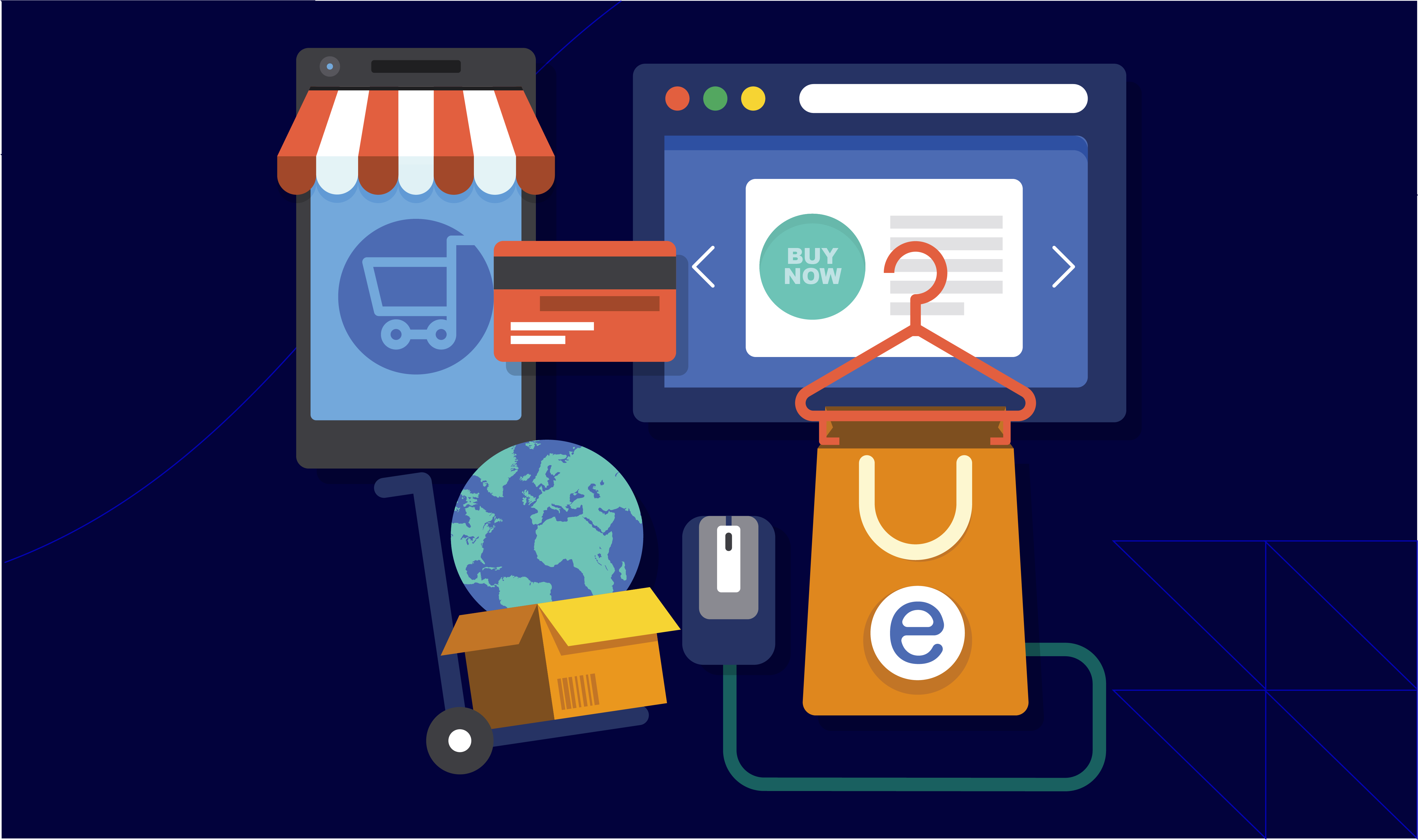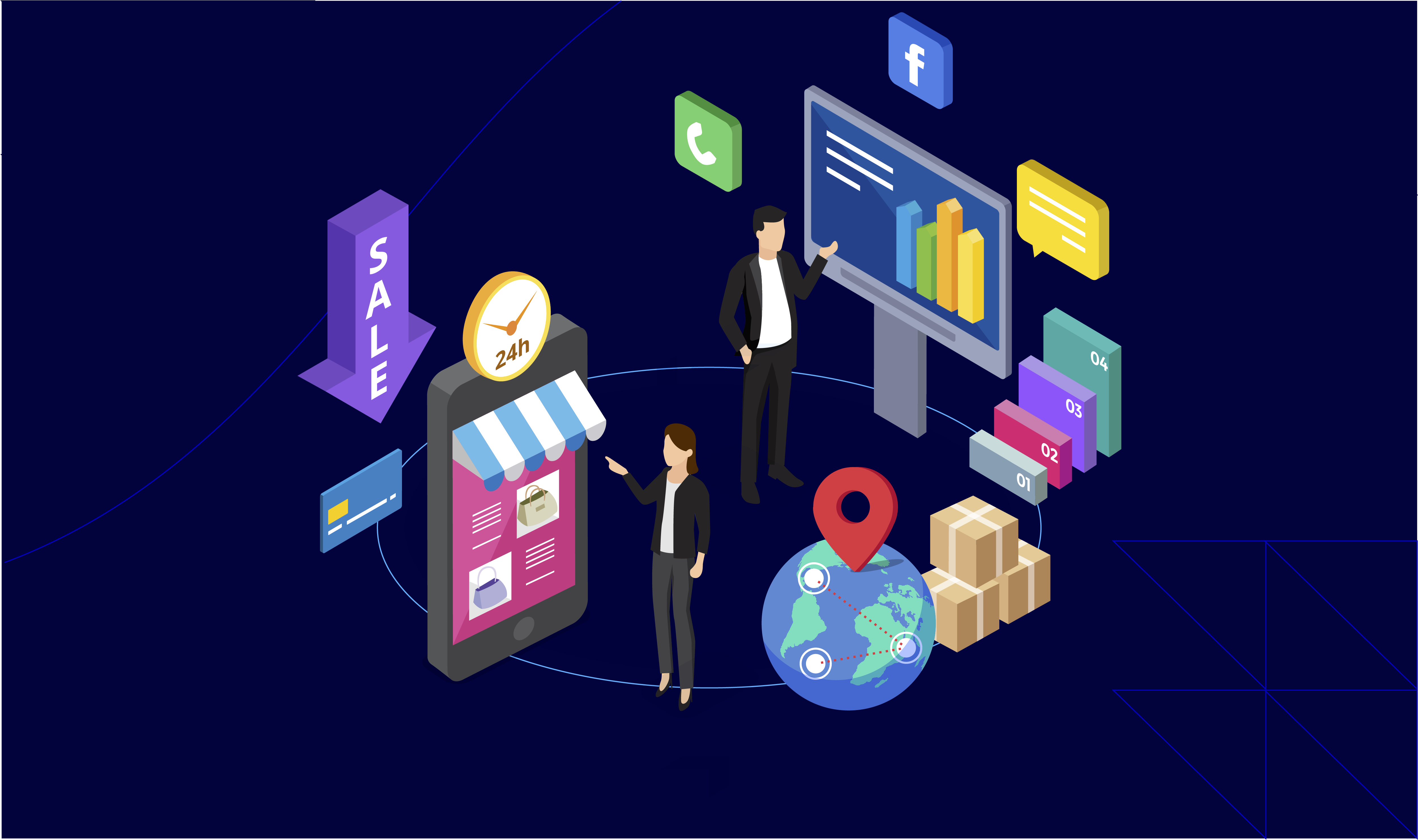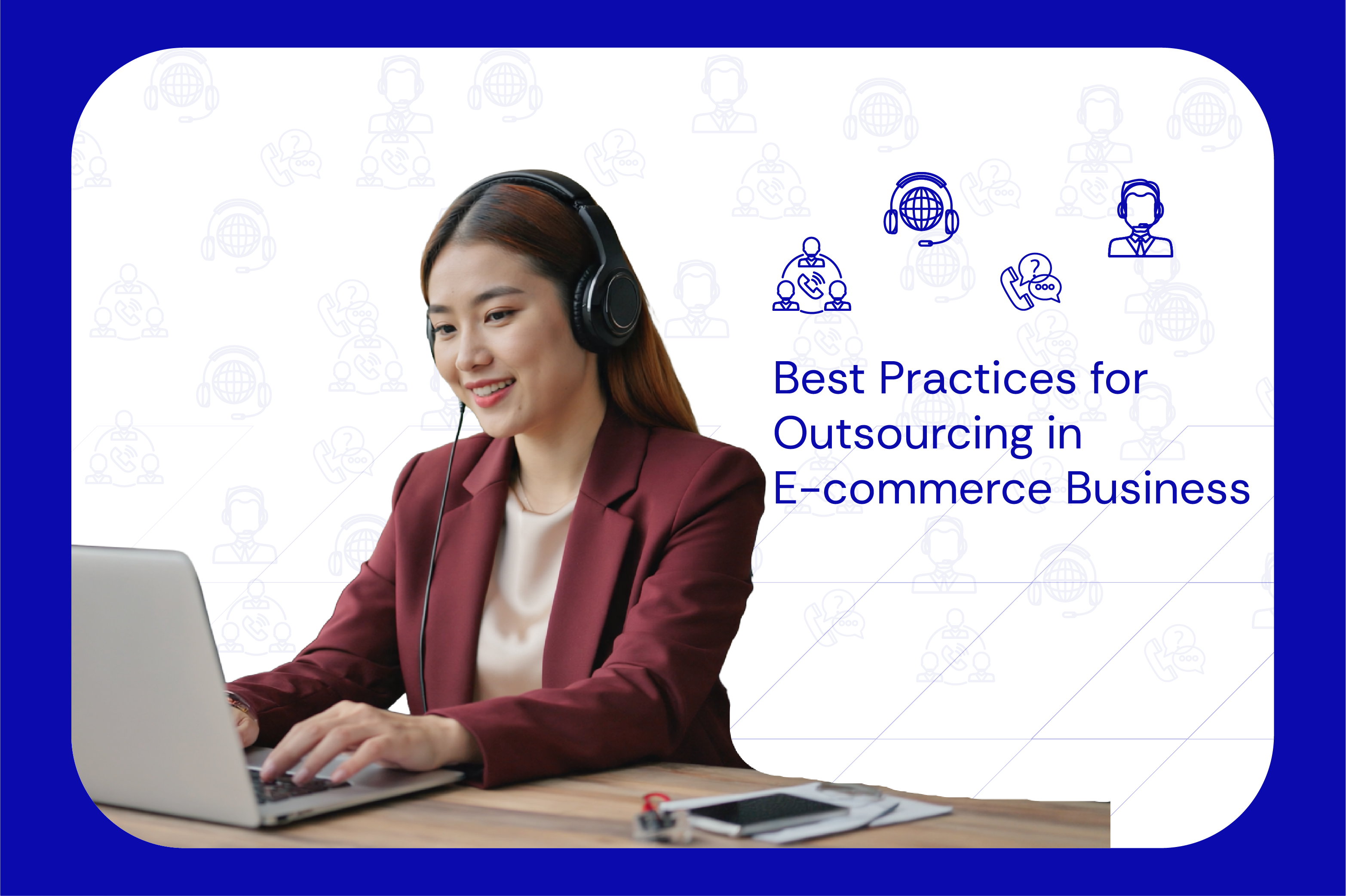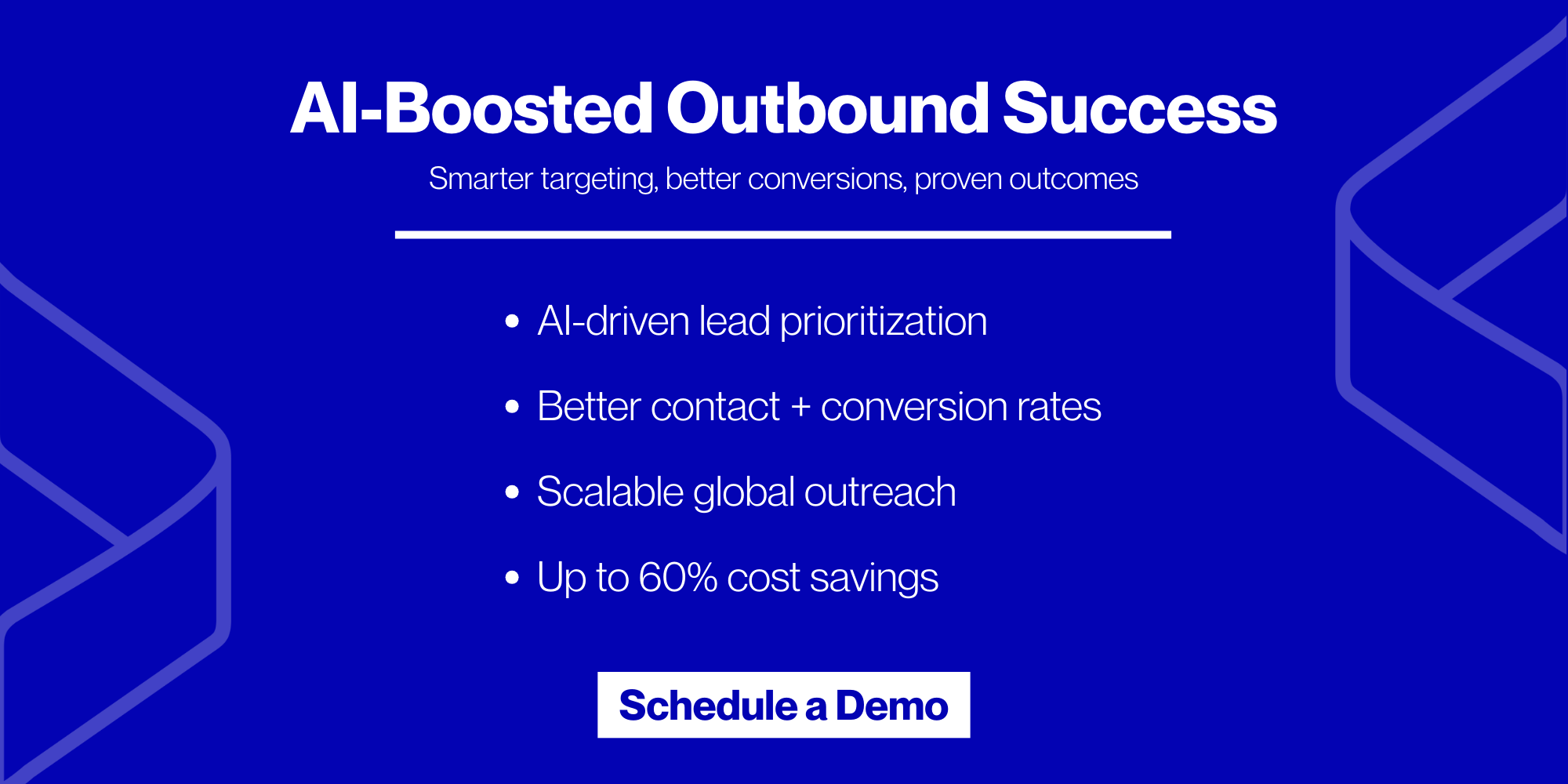With the growing digital marketplace, the e-commerce industry has gained enormous popularity and success. In this competitive space, every click and every customer experience counts. For consumer brands and D2C companies with $5M+ in revenue, particularly in the US, UK & Australia, outsourcing is now a proven way to scale operations, control costs and deliver better customer support. Every e-commerce platform comes to a point where it needs to identify the optimal scalability route. A common question pops up: keep functions in-house or partner with an ecommerce outsourcing services company. Well, this blog is the answer to this question.
So, what is e-commerce outsourcing tips? We will see a detailed analysis of e-commerce outsourcing and 10 best practices to make outsourcing successful for CX and support leaders.
Read and learn more!
What is e-commerce outsourcing?

E-commerce outsourcing is the process of hiring a third party (an outsourced ecommerce solutions provider) to handle certain e-commerce functions. These tasks include managing inventory, handling websites, order fulfillment, and providing sales support. The business can also outsource data entry services, manage support tickets, provide technical support, and more.
By partnering with trusted ecommerce outsourcing companies, the owners can spend their quality time on other worthy things to develop their business. E-commerce outsourcing is cost-saving, and you can also gain access to specialized expertise.
Why should you outsource?- Top reasons you must know

There are many reasons why a company or business should avail itself of e-commerce outsourcing services. Here are the top reasons you should know.
- Save Time: By outsourcing certain tasks, you can save time. By outsourcing tasks like customer service, managing your inventory, and order fulfillment to the experts, you can allocate time for other critical areas that require more attention. By outsourcing these tasks, you can run an online e-commerce business with ease.
- Cost-effective: You can cut down the overhead tasks by hiring skilled experts to handle these tasks. You can avoid spending money on expensive inventory software. Many ecommerce outsourcing service providers offer packages that reduce total cost of ownership. By hiring e-commerce outsourcing services you can get comprehensive solutions for tasks like customer service, order placements, website designs and many more. For this, you will need to pay a monthly fee for these services. Some e-commerce outsourcing service providers offer discounted packages. It is perfect for D2C companies and consumer brands operating in the US, UK & Australia regions.
- Access e-commerce expertise: Running an e-commerce online store is never an easy task. It involves many tasks, which include ensuring customer satisfaction, whether the customers can easily browse your products, product descriptions, photos, packages and returns. Handling all the tasks by yourself can be overwhelming. With the help of the experts, you can handle these tasks efficiently. They can assist you by selecting the right products for your sites, handling the website and carrying out market campaigning. With these professional services, you can stay updated in the e-commerce industry. It is highly useful for VPs and directors handling customer experience in growing consumer brands and D2C companies with $5M+ revenue. Outsourced ecommerce solutions providers bring domain expertise that VPs and Directors of CX rely on for efficiency.
- Scalability: The e-commerce industry has shown steady growth since the pandemic. Customers are demanding that the e-commerce industry be more agile. With e-commerce outsourcing services, you can meet the requirements of the customers. Establishing an e-commerce business needs a heavy initial investment, and running it effectively needs more effort. With the help of e-commerce outsourcing, you can hire a third party to carry out the tasks effectively. This can help you scale up your business with minimal investment.
- Increase Flexibility: With the help of outsourcing e-commerce, you can boost your productivity. With the help of skilled professionals, you can stay updated with the day-to-day operations of the business, and you can quickly adapt to the changes in the e-commerce industry. With the help of e-commerce outsourcing, you can flexibly switch to the market changes; whether it is announcing the product offers or discounts, you can focus on the things that will elevate your business. You can also customize the e-commerce needs with the help of these experts. For companies with 5+ employees, outsourcing ensures faster adaptation to seasonal shifts and consumer behavior changes.
- Mitigate Risks: By handing over the risky tasks to a skilled professional, you can reduce the risk in your e-commerce business. These experts will have proficiency in fields like cybersecurity, data management, and compliance. They will also help you stay updated with the latest trends and security changes.
Top 10 best e-commerce outsourcing practices you must know

E-commerce customer service outsourcing works best for CX and support leaders in consumer brands and D2C companies. Take a look at these top 10 best outsourcing e-commerce practices you must know.
1. Set clear and realistic expectations/goals
When it comes to e-commerce outsourcing, you must have a clear goal. Start with areas in your e-commerce business that need to be outsourced. This should include everything, right from customer support to cost saving. By outsourcing these tasks to skilled professionals, you can reduce the risks and help boost the productivity of your business. Here are a few common areas that businesses must consider for outsourcing.
- Customer service.
- Accounting and finance.
- Data entry.
- Web design.
- Back office processing.
- Content marketing.
Once you know the areas that need to be outsourced, you can have proper communication with the e-commerce outsourcing service providers. Always make sure what your expectations and goals are with e-commerce service providers. This will help you get rid of any misunderstandings.
2. Take hidden costs into consideration
The ultimate aim of outsourcing is to reduce unwanted expenses. But always make sure you read the contract thoroughly before signing it. Review contracts carefully. Some ecommerce outsourcing service providers charge extra for tech support or upgrades. Have a clear look at whether they are adding the charges per hour or based on the work done. This can show a drastic increase in charges. If your e-commerce business needs any additional services, always talk in advance about the charges or whether the services are already included.
Always remember to choose your outsourcing service providers wisely. Check multiple options and select the one that best fits your business needs. Avoid relying on providers whose only advantage is low cost. The cheapest option is not always the best!. Nowadays, several VPs, senior managers, and directors of D2C companies are outsourcing to cut their operational costs.
3. Do not take KPIs for granted
KPIs (Key Performance Indicators) track and measure the success of your outsourcing relationship. Finding efficient e-commerce outsourcing services can be a great relief and can ease your tasks. But you cannot fully rely on them. All you need is continuous monitoring of their performance and productivity. You can make use of the productivity indicators to track their performance.
These are some of the general KPIs that are often used while outsourcing. They are,
- Project budget and expenditure.
- Timelines and percentage of accuracy in tasks.
- Response time and quality of services.
- Service Level Agreements(SLAs) met or not.
Take time to understand which KPI are relevant for your business before you outsource the tasks. This way, you will track the success of your outsourced work. Atidiv-managed e-commerce support teams often achieve CSAT scores of 4.8+ with SLA compliance over 98%.
4. Be open to cultural differences
Trusting your outsourcing partner is very important for the success of your e-commerce business. Next in the best practices for outsourcing e-commerce is being open to cultural differences. This may sound a bit odd, but it is very important and efficient. If you are a newbie in your office and find it difficult to adapt to the work culture, you will not be successful. Similarly, the outsourcing team or partner may be operating from other parts of the world. You should be open to accepting their cultural differences.
Before hiring the customer experience outsourcing partner, be open with even the minute details. The holidays and annual calendar to be followed, and many more. The outsourced project will be successful only if you are ready to understand their cultural differences. This is not even a challenging task if you are open to respecting and accepting these differences.
5. Ensure Adherence to Industry Regulations
When hiring e-commerce outsourcing services, you must be very clear about the industry regulations. You will need to have a proper agreement on the ownership deals; otherwise, you risk one party taking credit for the work done. Here are a few regulations one can follow:
Work for hire: By this agreement, the outsourcing company is considered to be the employee of the hiring company. They are bound to work under the rules and regulations of the hiring company.
- Definition: Work for hire is defined as the situation in which the company or the employer owns the copyright to the work rather than the creator.
- Why is it important: It is very important to avoid any disputes regarding the ownership or copyrights.
Possessed Rights: These rights make sure that your outsourcing providers agree to work for your company and do not render their services outside your company.
- Definition: As the name suggests, possessed rights are all about the legal rights of ownership that grant control over the work.
- Importance: It is important to understand what rights are owned and how they can be used to protect creative works.
DMCA: DMCA is the Digital Millennium Copyright Act. The outsourcing services should be well-versed in both the national and international consumer protection laws.
- Definition: DMCA is the law to protect digital infringement.
- Importance: With the help of the DMCA, you can make a legal framework for copyright owners to take necessary steps against any illegal online infringement.
6. Outline a detailed data and privacy policy
For $5M+ revenue D2C brands, safeguarding customer data is necessary. This is one of the most important outsourcing e-commerce practices you should never forget. Always ensure that your company follows the right data security measures and is multilayered too. When you are running an e-commerce business, addressing fraud risks and running secure transactions are very important. This also includes the protection of the personal information of the customers as well as the outsourcing of employees.
When the information is not handled properly, there is a serious risk of privacy infringement. This can lead to the exploitation of the details collected, which can adversely affect your business. It is not necessary to have a complicated privacy policy. The policies can be simple and should cover all the necessary details. This is particularly critical for $5M+ revenue D2C brands handling high volumes of support and transaction data.
7. Be in constant communication
Effective communication is the key to running a successful business. When it comes to outsourcing, maintaining proper communication is crucial for executing tasks efficiently. Regular communication helps you avoid misunderstandings while managing projects. You can engage in communication with your outsourcing service team in the following ways.
- Regular meetings: For outsourcing businesses to work well, regular meetings are pivotal. With these meetings, you can have a regular check on the work done, and you can give suggestions and updates regarding the work.
- Updating Project Status: For the work to run smoothly, it is very important for you to get the updates on the projects. A detailed explanation of the summary, upcoming tasks, and deadlines should be discussed.
Address any queries immediately and do not keep them for later. This can lead to confusion or misunderstanding. Always stay in touch with your outsourcing providers. Also, make sure you are giving regular feedback and reviews on the work done. Providing constructive feedback is very important for timely delivery.
8. Understand the capacity of the provider
Before you give your project to an outsourced provider, have a clear understanding of their capacity. How efficient are they at handling multiple workloads? What is their current project? What is the size of their team? Always give your project to the team that can efficiently handle the workload. Once the project is started, it cannot be dropped halfway through. Also, you can be flexible with the providers if you have projects that are not time-sensitive.
9. Choose cost-effectiveness over pocket-friendly options
Cost-effectiveness ≠ cheapest option. Do not be overly concerned about the cost of outsourcing services. Always look for the quality of work. Cost-effectiveness doesn’t mean pocket-friendly. At the end of the day, the quality of work matters. It is very common for us to be easily tempted by less expensive products. Here are a few parameters you need to consider before falling for cost.
- Benchmark Standard: This means prioritizing the quality of work, their efficiency in meeting the deadlines, and ensuring accuracy.
- Experience: It is very important to know the experience of the outsourcer and how experienced they are in the respective niche or industry.
- Notoriety: Always check for the reviews given for the e-commerce outsourcing service providers by previous clients. Check whether they are satisfied with the work done.
10. Pick the right outsourcing service provider
You cannot simply fall for any service provider available. Always go for one who is capable of taking on your tasks and finishing them with top-notch quality within the stipulated time. Have a thorough understanding of the strengths and weaknesses of the service provider. Select an outsourcing service provider with proven experience in CX outsourcing for consumer brands. Look for track records in scalability, cost savings and quality.
Final Thoughts
Choosing the right ecommerce outsourcing services company is not just a strategy; it is a necessity for achieving a successful e-commerce business. The success of e-commerce outsourcing depends on how well you communicate with them and maintain a healthy relationship. With the growing competition in the e-commerce field, it has become very important for the e-commerce business or industry to hire a skilled outsourcing service provider.
Case Study Example: Atidiv enabled an NYC start-up to save 80% in time, 50% in costs and achieved 99% accuracy (read more). Another client saved $450K annually in potential makegoods with 65% workforce cost reductions.
Atidiv is a trusted ecommerce outsourcing service provider for consumer brands across the US, UK & Australia. From customer support to back-office services, our teams deliver improvements and cost savings.
Atidiv provides you with exceptional outsourcing to make your business a successful one. We offer you high performance with real-time results. For more information, contact us!
FAQs on e-commerce outsourcing
1. What are the types of outsourcing?
There are 8 different types of outsourcing. They are,
- Professional Outsourcing.
- IT outsourcing.
- Process-specific outsourcing.
- Project outsourcing.
- Operational outsourcing.
- Manufacturing outsourcing.
- Logistics outsourcing
- Multi-sourcing.
2. What are the three most important factors for successful outsourcing?
- Understanding the cultural differences.
- Have detailed communication.
- Transparency.
3. What is the most commonly used method of outsourcing in 2025?
The most commonly used method of outsourcing is Business Process Outsourcing(BPO). This process usually involves hiring a third party to handle the specific business process.

